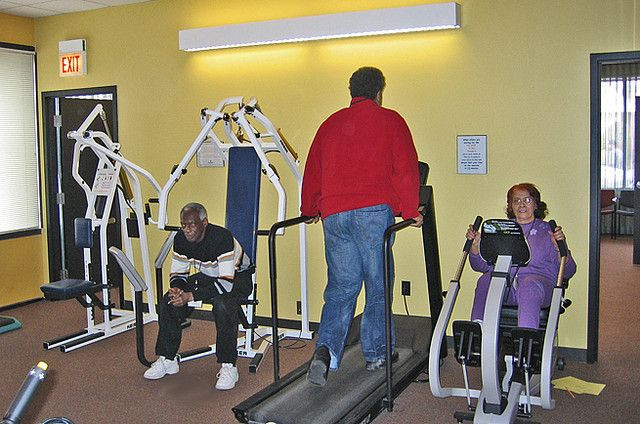
A French study has shown that all seniors, even those considered frail, can enjoy the benefits of exercise in terms of their physical and cognitive faculties and quality of life and that these benefits appear after only three months.
"For the first time, frail senior citizens have participated in a study on exercise thanks to the collaboration of medical doctors, who provided close medical supervision," study author Louis Bherer said.
The findings were published online on the Web site of the Journals of Gerontology.
The researchers said the team was able to demonstrate that sedentary and frail senior citizens can benefit from major improvements not only in terms of physical function but also brain function, such as memory, and quality of life.
Researchers studied 83 participants, some of whom were frail, between the ages of 61 and 89 years. The participants were evaluated one week before the start of the program and at the end of the program for physical capacity, quality of life and cognitive health
Forty-three of the participants took part in group exercises, 3 times a week for 12 weeks, while the control group of 40 participants did not follow the exercise program.
Compared to the control group, trained participants showed larger improvement in physical capacity (functional capacities and physical endurance), cognitive performance (executive functions, processing speed and working memory) and quality of life (overall quality of life, recreational activities, social and family relationships and physical health).
Benefits were equivalent among frail and non-frail participants suggesting that there is't never too late to engage in exercise intervention programs.
"We hope to adapt the exercise program used in the study and make it available to the public through the seniors' health promotion center that the IUGM is developing, Bherer said. "We believe that by transferring our research findings to the public, we will help both healthy and frail senior citizens stay at home longer."
Frailness is characterized by decreased functional reserves in an individual, which increases vulnerability to stressors and the risk of adverse health effects. Frailty is associated with a higher risk of falls, hospitalizations, cognitive decline and psychological distress.
Currently, 7 percent of seniors aged 65 to 74, 18 percent of those aged 75 to 84, and 37 percent of seniors over the age of 85 are considered frail.
© 2025 Latin Times. All rights reserved. Do not reproduce without permission.




